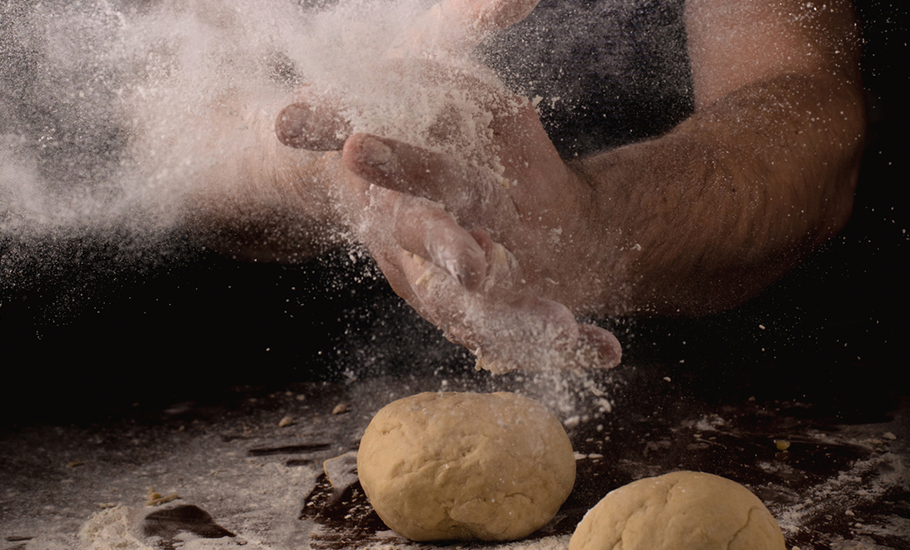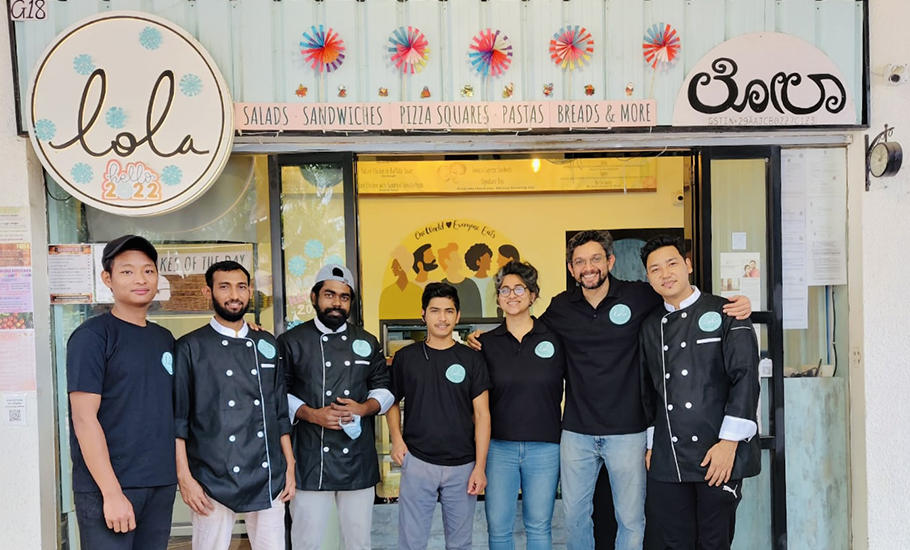
- Home
- India
- World
- Premium
- THE FEDERAL SPECIAL
- Analysis
- States
- Perspective
- Videos
- Sports
- Education
- Entertainment
- Elections
- Features
- Health
- Business
- Series
- In memoriam: Sheikh Mujibur Rahman
- Bishnoi's Men
- NEET TANGLE
- Economy Series
- Earth Day
- Kashmir’s Frozen Turbulence
- India@75
- The legend of Ramjanmabhoomi
- Liberalisation@30
- How to tame a dragon
- Celebrating biodiversity
- Farm Matters
- 50 days of solitude
- Bringing Migrants Home
- Budget 2020
- Jharkhand Votes
- The Federal Investigates
- The Federal Impact
- Vanishing Sand
- Gandhi @ 150
- Andhra Today
- Field report
- Operation Gulmarg
- Pandemic @1 Mn in India
- The Federal Year-End
- The Zero Year
- Science
- Brand studio
- Newsletter
- Elections 2024
- Events
- Home
- IndiaIndia
- World
- Analysis
- StatesStates
- PerspectivePerspective
- VideosVideos
- Sports
- Education
- Entertainment
- ElectionsElections
- Features
- Health
- BusinessBusiness
- Premium
- Loading...
Premium - Events

Why Bengaluru’s cloud kitchens continue to soar high

People were out of jobs, the ones still working were stuck inside homes, and everything was closed. As the pandemic struck, thriving metropolitan cities were reduced to dystopian ghost towns where talking heads lay silently within the confines of four walls. Even as many turned cooks postings videos of their newly acquired or recently dusted off culinary skills, there still remained those...
People were out of jobs, the ones still working were stuck inside homes, and everything was closed. As the pandemic struck, thriving metropolitan cities were reduced to dystopian ghost towns where talking heads lay silently within the confines of four walls. Even as many turned cooks postings videos of their newly acquired or recently dusted off culinary skills, there still remained those who didn’t want to cook – neither for themselves nor for Insta posts. For them, cloud kitchens cooked relief.
Born during the pandemic
Cloud kitchens are commercial kitchens leased out for the purposes of delivering food and takeaway meals only. Unlike traditional dine-in restaurants, one can’t sit and soak in the ambience as they bite into food.
“In a way, the pandemic was a boon for us. As people were stuck inside their homes, they ordered food a lot more than usual. Thankfully, the government had classified cloud kitchens as essential services and we remained open for business,” Sejal Prabhu, who owns and runs Kitchen Lola with her husband, told The Federal.
Lola opened her kitchen in December 2020, just when the first wave was coming to an end. Prabhu feels the pandemic helped Lola open for a much lower rent than usual as the demand for such spaces was negligible given the circumstances. Necessary equipment also came cheap for the same reason.

“Since we opened at the end of 2020, we had a surprisingly busy opening day. After living inside for multiple months, people were bored out of their minds. So many people showed up and we got multiple walk-ins as well,” said Prabhu.
The Flavour Co, a collective of five different cloud kitchens serving multiple cuisines, is another example of a thriving cloud kitchen model in the city, born during the pandemic. “In the case of cloud kitchens, convenience comes first to customers. Instead of you going to a place, the food comes to you after following all the safety norms. Hence, such businesses naturally took off during the pandemic,” said Krishnapriya Banerjee, marketing head for URU Brewpark, which owns The Flavour Co.
The post-pandemic era
While the Covid-era hasn’t come to its complete end, it is presumably in its twilight phase. Shops and businesses have all opened up and the streets are filled with people bumping into each other. With dine-restaurants also back in business, profits earned by cloud kitchens seem to have dipped, but not completely.
“Our business seems to have taken a hit. Roughly, I’d say a 20 per cent hit during the weekends as compared to before. But on the other hand, our weekday profits have increased. We feel it is because a lot of people have gone back to working in offices rather than at home. Since Lola is situated near a tech park, we see a lot of orders coming in during lunch hours,” said Prabhu.
“The decline in business, which is around 5 per cent for us, hasn’t been big enough to be concerned about. While it is true that people are going out more, we are still getting a similar number of pizza and biryani orders due to house parties and other types of get-togethers,” said Banerjee.
Perks of having a cloud kitchen
One of the more obvious advantages of owning a cloud kitchen, as compared to a restaurant, is the relatively low expenditure cost. All you need is a competent, functioning kitchen to make good quality food. You don’t need a space for customers to sit in, and no reasons to invest in a decor either.
“You can also pretty much be located anywhere, it doesn’t have to be in an area where the average footfall is high, that would cost a much higher rent. Cloud kitchens can also price their food at lower rates compared to restaurants, which is something that takes precedence when a customer orders food,” said Prabhu.
“Cloud kitchens aren’t a new thing. It took off during the pandemic and proved to the culinary world that delivery-only services can work. They also open job opportunities in a variety of sectors like operational jobs for people who work in the kitchen, supply chain jobs and delivery gigs,” said Rashmi Daga, founder and CEO of FreshMenu.
Gig workers like delivery partners have especially benefited from the success of cloud kitchens. Since these aren’t places where you can eat in, the need for fulfilling deliveries has increased multifold.
“I know many people who have a job during the day and then work for Swiggy, Zomato and other such companies at night. The need for delivery partners is very high right now,” said Banerjee.
“Pan-India, the delivery quotient has gone up by 20 to 30 per cent and cloud kitchens have a significant part to play in it. More cloud kitchens are going to open up in the next quarter, and job opportunities will increase even more,” said Ravi Saxena, a chef who’s been in the food industry for 29 years and currently manages multiple cloud kitchens like Oki Poki, a pan-Asian cloud kitchen launched by the food company Azure Hospitality, in Bengaluru.

Saxena believes that in a cloud kitchen, one also has the option of running multiple cuisines (The Flavour Co is an example of this), allowing for a multitasking staff that results in lesser manpower than a multi-cuisine restaurant.
Why is this model so successful in Bengaluru
According to a 2019 study by the National Restaurant Association of India, Bengaluru tops all Indian cities in ordering food from outside. On an average, Bengaluru orders Rs 3,536 worth of food per household a month against a national average of Rs 2,500. It also has the third -largest organised food service market and the third largest restaurant network.
Following the same trend, of all the cities in this country, cloud kitchens seem to have struck a profitable chord in Bengaluru. There are more cloud kitchens in this city than anywhere else and they all seem to be thriving well after the passing of the pandemic, according to cloud kitchen owners. One of the reasons behind this incidentally happens to be a longstanding criticism of Bengaluru: its traffic.
“Due to the infamous Bengaluru traffic, people would rather order in than go out. This has helped businesses like ours to succeed in this city. This is also why there are more delivery partners in Bengaluru than anywhere else,” said Prabhu.
Daga feels businesses focused on deliveries are relatively more successful in India as compared to other countries. The secret behind it is a problem prevalent in every big city in this country.
“Unlike foreign countries, eateries in Indian cities are located in specific areas. In Bengaluru, Indiranagar is one such place. So, people living there have easy access to restaurants. Someone residing in Whitefield, for example, isn’t so lucky and they’d have to cover large distances to eat out. Hence in such an environment, delivery businesses naturally thrive,” said Daga.

Residents of Bengaluru also seem to be more inclined towards ordering food at home. Some feel it is a habit that developed during the pandemic and has now stuck. Cloud kitchens also offer faster delivery.
“Since restaurants have to deal with dine-in orders, it delays the online orders by a bit. Cloud kitchens solely deal with online orders resulting in a faster process. They also provide cheaper options compared to restaurants and offer the same, or even better, quality of food at times. The menu at a cloud kitchen is also unique, compared to solo-cuisine or chain restaurants,” said BB Parekh, a media professional in the city who often orders from cloud kitchens.
